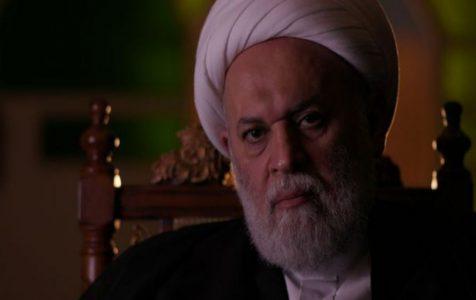
General killed hundreds of British troops in Iraq then fought with UK against ISIS terrorist group
He is one of the most powerful figures in the Middle East , a military mastermind who has singlehandedly shaped some of recent history’s most world-changing wars.
And in the process Iranian Qassem Soleimani turned from enemy to ally – and to enemy again – of the West.
The general, who is in charge of Iran’s foreign military interventions, was blamed for causing the deaths of hundreds of British and American soldiers after deploying Iran’s military might to support Shia militants during the Iraq war.
Yet just a few years later, he went from foe to friend by fighting alongside Britain and the US against ISIS , when he helped halt the terror group’s onslaught towards the Iraqi capital Baghdad.
But while Soleimani has been photographed directing operations on battlefields from Mosul to, most recently, Aleppo in Syria, he mostly operates in the shadows and is rarely seen or speaks in public.
Now, a new BBC documentary tells the story of the man dubbed “the Darth Vader of contemporary Middle Eastern politics” by one American military commander – and traces his complicated relationship with Western powers over the years.
Shadow Commander: Iran’s Military Mastermind, which airs at 9pm tonight, reveals Soleimani’s extraordinary role in recent conflicts across Syria, Iraq and Lebanon.
It also suggests the commander is now turning his attention to Iran’s ultimate enemy, Israel, using the allies he has made to surround the Jewish state for the ultimate battle.
Describing his dealings with the man revered as a hero in his own country, Gen David Petraeus, the former CIA director and commander of U.S. forces in Afghanistan, said: “We saw Qassem Soleimani as a very capable, charismatic, skilled, professionally competent, diabolically evil human being.”
And former US ambassador to Iran Ryan Crocker said: “He is the quintessence of global evil. Not a sparrow falls that Qassem Soleimani didn’t personally shoot down.”
Soleimani’s rise from a humble upbringing in a poor Iranian village to being it’s undisputed military leader is itself the stuff of legend.
Leaving his home in 1979 soon after the Iranian Revolution unfolded, he joined the Revolutionary Guard Corps (IRGC) and quickly became a committed follower of Ayatollah Ruhollah Khomeini, who had returned from exile to seize power.
He rose steadily through the ranks of the Iranian military, earning a reputation for bravery during the Iran-Iraq War (1980-1988) when, after getting injured, he refused to go home and fled the hospital back to the front line.
Sheikh Jalal Al-Saghir, a Shia Imam and Iranian politician, remembered fighting alongside him.
He said: “On the battlefield I found him to be very brave. He gained an extraordinary reputation.
“He was spiritual and idealistic, which is different from the strict and harsh character you normally find in military commanders.”
Soleimani was already a high-ranking military commander when the 9/11 terror attacks happened, and Iran and the USA – up until then sworn enemies – discovered they had a common enemy, the Sunni extremists from groups like al-Queda.
Days after the World Trade Center attacks, Ryan Crocker, who at the time was US ambassador to Syria, was sent to meet Soleimani in Geneva.
He said: “We all realised that this development opened up a moment in which the United states and Iran could cooperate effectively. We both had the same enemies in Afghanistan.
“He produced a map that showed the Taliban order of battle throughout Afghanistan, and he accompanied that with the advice that we strike certain targets first.
“I asked if I could take notes and he said ‘you can keep the map’.
“He clearly had the ability to make things happen quickly.
“There was none of this talk about the horrors of the past, what we had done to Iran and what Iran had done to us. He was all about, let’s get on with this show, right now.”
But the two nations’ new-found willingness to work together came crashing down after US president George Bush made his ‘Axis of Evil’ speech, including Iran, and claiming they were state sponsors of terrorism.
Mr Crocker recalled: “We moved literally overnight from a situation where we were doing business with Iran on Afghanistan, which was quite significant and that held open the prospect of a completely different chapter in our relationship.
“Axis of Evil slammed that door shut and it has not since reopened.”
A year later, months before the US invasion of Iraq, Soleimani was appointed to command the most elite unit of the Iranian military – the Revolutionary Guard’s expeditionary special force, Al-Quds.
And with American forces now hemming in Iran to the west and the east, he knew he needed to support Iraq’s Shia muslim majority which was trying to resist the Coalition occupation.
He reached out to Qais Khazali, the leader of Iraq’s Shiite insurgency.
Khazali, now an Iraqi politician, said: “Iran had political and strategic interests against the United States. And we had national interests against the American occupation. And so our interests met and the result was achieved.”
Iran’s covert involvement in the Iraq war changed the balance of power completely.
Soleimani was responsible for smuggling of thousands of sophisticated bombs into the country and arming the militias fighting the occupation, resulting in the deaths of hundreds of British and US troops.
Source: Mirror





